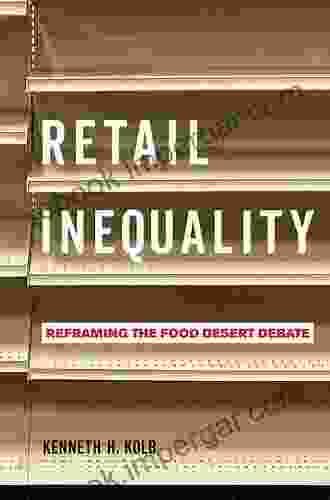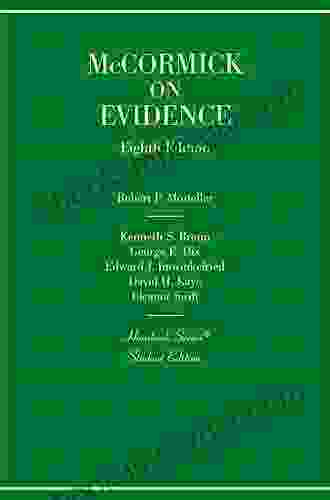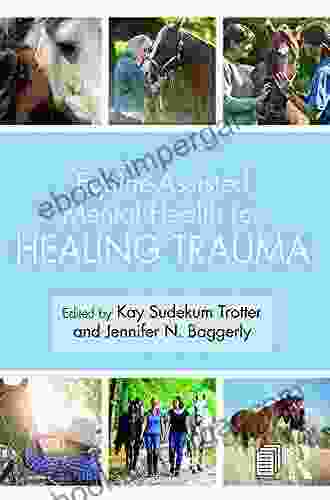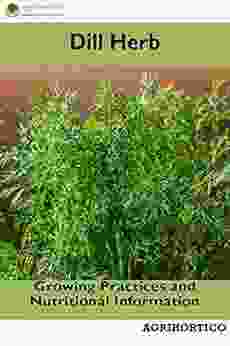Beyond Food Deserts: Reframing the Food Access Debate

Unveiling the Complexities of Retail Inequality
For decades, the term "food desert" has dominated the discourse on food access, painting a simplistic picture of impoverished neighborhoods lacking access to healthy food options. While the concept has raised awareness, it has also fallen short of capturing the multifaceted nature of retail inequality that affects communities across the country.
The concept of retail inequality encompasses a broader spectrum of disparities, including the availability of full-service grocery stores, the density of healthy food outlets, the affordability of nutritious foods, and the presence of food-related businesses that support healthy eating habits. Understanding these nuances is crucial for developing effective strategies to address food insecurity and promote health equity.
5 out of 5
| Language | : | English |
| File size | : | 7913 KB |
| Text-to-Speech | : | Enabled |
| Screen Reader | : | Supported |
| Enhanced typesetting | : | Enabled |
| Word Wise | : | Enabled |
| Print length | : | 354 pages |
| Lending | : | Enabled |
Challenging the Food Desert Narrative
The food desert framework has several limitations that hinder our understanding of retail inequality and its impact on communities:
- Oversimplification: It fails to account for the diverse experiences and needs of different communities and the complex interplay of factors that influence food access.
- Geographic Determinism: It focuses solely on the physical distance to grocery stores, ignoring the role of economic, social, and cultural factors in shaping food consumption patterns.
- Lack of Precision: The definition of a food desert is often arbitrary and varies widely, making it difficult to assess the true extent of the problem and track progress over time.
- Stigmatization: It perpetuates negative stereotypes about certain neighborhoods, potentially discouraging investment and community development efforts.
Delving into the Dimensions of Retail Inequality
To fully understand retail inequality, it is essential to consider its multifaceted dimensions:
- Availability: The presence or absence of food outlets that offer a variety of healthy and affordable food options within a community.
- Accessibility: The physical and economic barriers that prevent residents from reaching and utilizing food outlets, including transportation, affordability, and store hours.
- Affordability: The cost of food relative to income, which can limit access to healthy options, especially for low-income households.
- Acceptability: The cultural and personal preferences that influence food choices and may affect the utilization of available food outlets.
- Sustainability: The long-term viability and resilience of food systems, including the support for local food production, distribution networks, and community-based food initiatives.
Empowering Communities for Equitable Food Systems
Addressing retail inequality requires a comprehensive approach that empowers communities to create resilient and equitable food systems:
- Community Engagement: Involving residents in decision-making processes to ensure that interventions align with their needs and priorities.
- Policy Advocacy: Advocating for policies that support the development of healthy food retail options, protect vulnerable populations, and address systemic barriers.
- Economic Development: Attracting and supporting food-related businesses that create jobs, stimulate local economies, and increase access to healthy food.
- Infrastructure Improvements: Investing in transportation infrastructure, sidewalks, and other amenities that improve mobility and accessibility to food outlets.
- Collaboration: Fostering partnerships between community organizations, government agencies, and businesses to leverage resources and expertise.
A Path to Food Justice
Moving beyond the limitations of the food desert framework, we can reframe the food access debate and address the complexities of retail inequality. By embracing a multidimensional understanding of the issue and empowering communities to shape their own food systems, we can create a more just and equitable food environment for all.
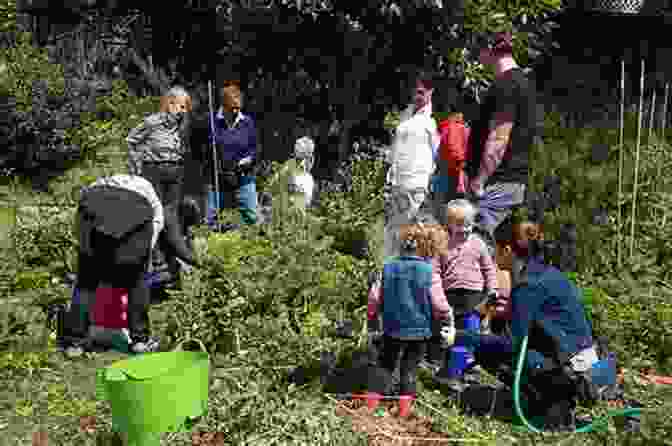
5 out of 5
| Language | : | English |
| File size | : | 7913 KB |
| Text-to-Speech | : | Enabled |
| Screen Reader | : | Supported |
| Enhanced typesetting | : | Enabled |
| Word Wise | : | Enabled |
| Print length | : | 354 pages |
| Lending | : | Enabled |
Do you want to contribute by writing guest posts on this blog?
Please contact us and send us a resume of previous articles that you have written.
 Book
Book Novel
Novel Page
Page Chapter
Chapter Text
Text Story
Story Genre
Genre Reader
Reader Library
Library Paperback
Paperback E-book
E-book Magazine
Magazine Newspaper
Newspaper Paragraph
Paragraph Sentence
Sentence Bookmark
Bookmark Shelf
Shelf Glossary
Glossary Bibliography
Bibliography Foreword
Foreword Preface
Preface Synopsis
Synopsis Annotation
Annotation Footnote
Footnote Manuscript
Manuscript Scroll
Scroll Codex
Codex Tome
Tome Bestseller
Bestseller Classics
Classics Library card
Library card Narrative
Narrative Biography
Biography Autobiography
Autobiography Memoir
Memoir Reference
Reference Encyclopedia
Encyclopedia Kerri Hummingbird Sami
Kerri Hummingbird Sami Kelly Ritter
Kelly Ritter Kerri Shields
Kerri Shields Kevin Bales
Kevin Bales Kim Chamberlain
Kim Chamberlain Kim Collins
Kim Collins Ken Wharfe
Ken Wharfe Ken Hollings
Ken Hollings Kieko Matteson
Kieko Matteson Kenji Uchino
Kenji Uchino Kevin Albert
Kevin Albert Kevin Clark
Kevin Clark Ken Casey
Ken Casey Kenneth R Lang
Kenneth R Lang Kevin Brown
Kevin Brown Kenneth V Hardy
Kenneth V Hardy Kevin D Randle
Kevin D Randle Kerrie Droban
Kerrie Droban Ken Ilgunas
Ken Ilgunas Kia Byrd
Kia Byrd
Light bulbAdvertise smarter! Our strategic ad space ensures maximum exposure. Reserve your spot today!
 Fredrick CoxFollow ·15.6k
Fredrick CoxFollow ·15.6k Dylan HayesFollow ·4k
Dylan HayesFollow ·4k Gabriel HayesFollow ·7.6k
Gabriel HayesFollow ·7.6k Justin BellFollow ·11.7k
Justin BellFollow ·11.7k Brennan BlairFollow ·19.9k
Brennan BlairFollow ·19.9k Douglas FosterFollow ·5.5k
Douglas FosterFollow ·5.5k Julio CortázarFollow ·15.3k
Julio CortázarFollow ·15.3k Henry GreenFollow ·3.3k
Henry GreenFollow ·3.3k

 Chadwick Powell
Chadwick PowellDiscover the Secrets of Optimal Health with "The Healthy...
Preface: Embark on a Transformative...

 Andres Carter
Andres CarterUnveiling the Profound Journey of Womanhood: A Daughter's...
In the tapestry of...
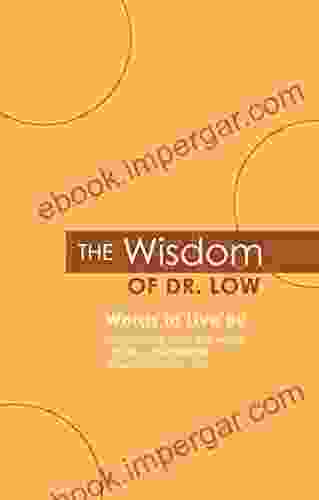
 Travis Foster
Travis FosterWords to Live By: The Essential Guide to Finding...
Words have the power to shape our...

 Chinua Achebe
Chinua AchebeThe Ultimate Guide for Men to Recover from a Breakup
: Breakups are never...

 Spencer Powell
Spencer PowellNew Mindset, New Results: The Proven Path to Unleashing...
About the Book ...
5 out of 5
| Language | : | English |
| File size | : | 7913 KB |
| Text-to-Speech | : | Enabled |
| Screen Reader | : | Supported |
| Enhanced typesetting | : | Enabled |
| Word Wise | : | Enabled |
| Print length | : | 354 pages |
| Lending | : | Enabled |


